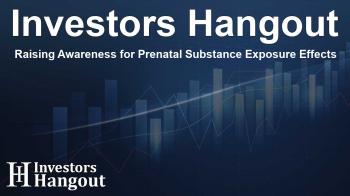Raising Awareness for Prenatal Substance Exposure Effects

Understanding Prenatal Substance Exposure
By Mary Kirchoff, CEO of Wonderland Child & Family Services / Hope Rising Clinic
Recent discussions and articles have shed light on children battling the impacts of Fetal Alcohol Spectrum Disorder (FASD). Contrary to popular belief, these stories are not simply about rare occurrences; they reflect a significant and often overlooked issue affecting many children.
In Washington State alone, estimates suggest over 165,000 children live with FASD or prenatal substance exposure (PSE). PSE refers to the exposure of a developing fetus to substances like alcohol during pregnancy. This is an issue that transcends socioeconomic boundaries, affecting families and communities everywhere. Statistical data shows that PSE is far more common than autism, with a prevalence rate four times greater.
The Challenges of Diagnosis
Many children suffering from PSE face delayed diagnoses, and often their struggles go unrecognized until they reach adolescence or even adulthood. While no cure exists for this neurological condition, we understand that timely and proper intervention can lead to much more favorable outcomes. With adequate support, those affected can develop meaningful relationships and thrive alongside their peers.
Shifting the Perspective
Changing the narrative around PSE is crucial. Unfortunately, societal stigma and misconceptions continue to hinder our collective understanding. Rather than focusing on how and why PSE occurs, we should concentrate on the immediate needs of affected children and their families. At Hope Rising Clinic, part of Wonderland Child & Family Services, we firmly believe that understanding and compassion should take precedence over blame.
We must stop sensationalizing diagnoses and instead recognize that PSE is a legitimate brain-based disability. These children deserve the same level of educational and social support that we strive to offer to other disabilities.
The Importance of Support Systems
Every day, we engage with families that navigate a complex juxtaposition of support services, often characterized by gaps and confusion. What these families need is clarity, connection, and a cohesive framework that encompasses the entire child. Each child is far more than their diagnosis—they are individuals with unique dreams and potentials.
The responsibility to provide support falls on all of us—as community members, as citizens, and as advocates for health and education. The notion that prenatal substance exposure is rare is misleading; it represents a silent but expanding epidemic that has very real implications for countless families.
Call to Action for Community Leaders
We encourage policymakers, health professionals, and community leaders to step up and make the necessary investments into early detection, trauma-informed care, and support systems. It's essential to listen to the families who often feel sidelined in these discussions and to create a network that prioritizes their needs.
Children affected by PSE are not burdens; they are a reservoir of possibilities waiting to be realized. It's our duty to ensure they receive the understanding, care, and resources needed to flourish.
Hope Rising Clinic's Mission
Hope Rising Clinic, established by Wonderland Child & Family Services in 2019, aims to offer specialized care for those affected by prenatal substance exposure. Through a holistic and trauma-informed approach, we strive to address the developmental and emotional needs of impacted children while simultaneously providing support for their families to facilitate lasting positive outcomes.
Frequently Asked Questions
What is prenatal substance exposure?
Prenatal substance exposure occurs when a developing fetus is exposed to substances like alcohol or drugs during pregnancy, potentially leading to various developmental challenges.
How many children are affected by FASD?
In Washington State alone, over 165,000 children are estimated to be living with the effects of prenatal substance exposure or Fetal Alcohol Spectrum Disorders (FASD).
What are the common challenges related to FASD?
Children with FASD often face delayed diagnoses, and their condition is frequently misdiagnosed. Support systems are crucial for addressing their emotional, developmental, and educational needs.
What should communities do to help?
Communities should focus on early identification of PSE, support trauma-informed care, and advocate for legislative changes that benefit affected families.
How can families find support?
Families can seek assistance from specialized clinics, community health services, and educational programs designed to address the challenges associated with prenatal substance exposure.
About The Author
Contact Evelyn Baker privately here. Or send an email with ATTN: Evelyn Baker as the subject to contact@investorshangout.com.
About Investors Hangout
Investors Hangout is a leading online stock forum for financial discussion and learning, offering a wide range of free tools and resources. It draws in traders of all levels, who exchange market knowledge, investigate trading tactics, and keep an eye on industry developments in real time. Featuring financial articles, stock message boards, quotes, charts, company profiles, and live news updates. Through cooperative learning and a wealth of informational resources, it helps users from novices creating their first portfolios to experts honing their techniques. Join Investors Hangout today: https://investorshangout.com/
The content of this article is based on factual, publicly available information and does not represent legal, financial, or investment advice. Investors Hangout does not offer financial advice, and the author is not a licensed financial advisor. Consult a qualified advisor before making any financial or investment decisions based on this article. This article should not be considered advice to purchase, sell, or hold any securities or other investments. If any of the material provided here is inaccurate, please contact us for corrections.

